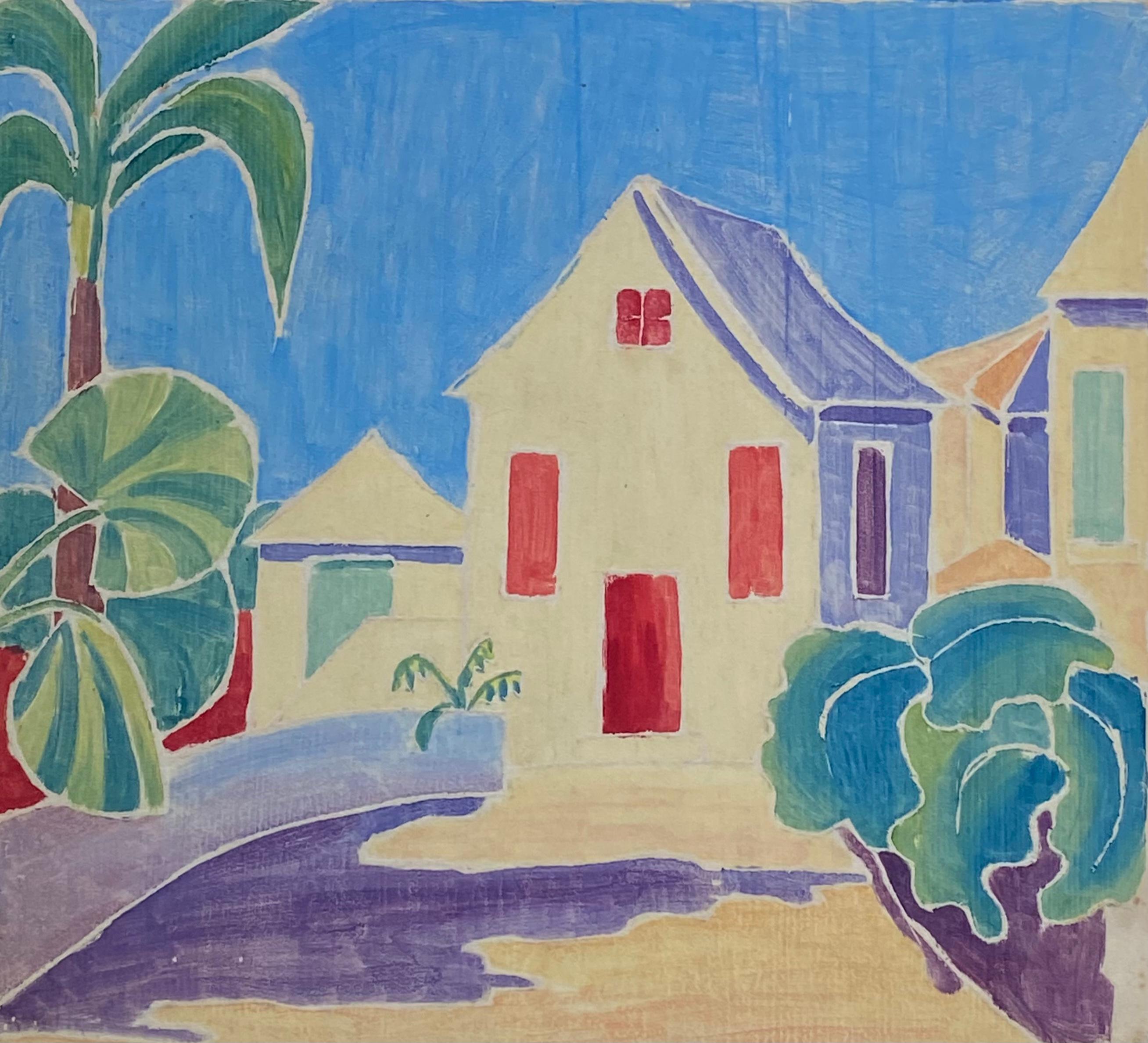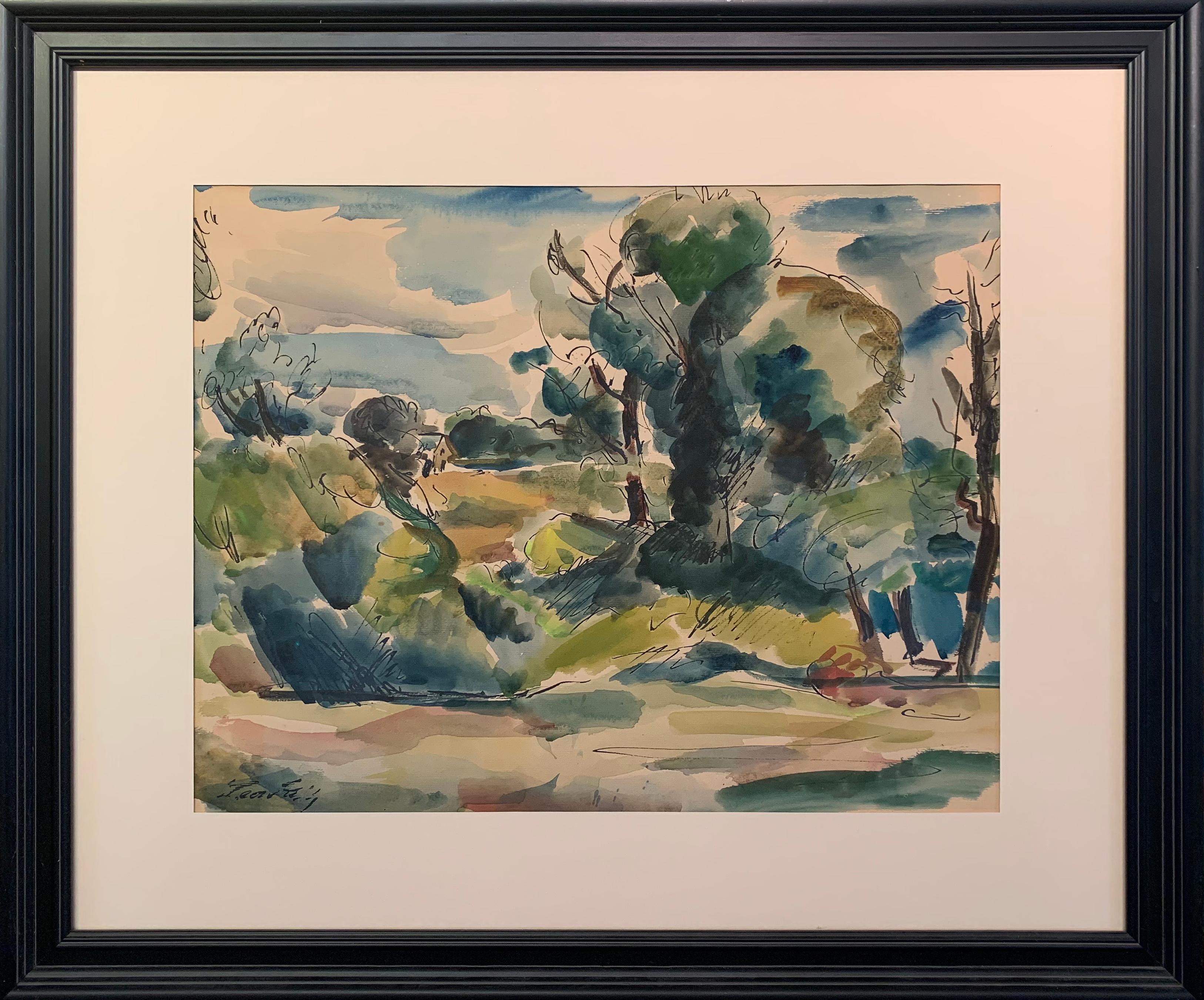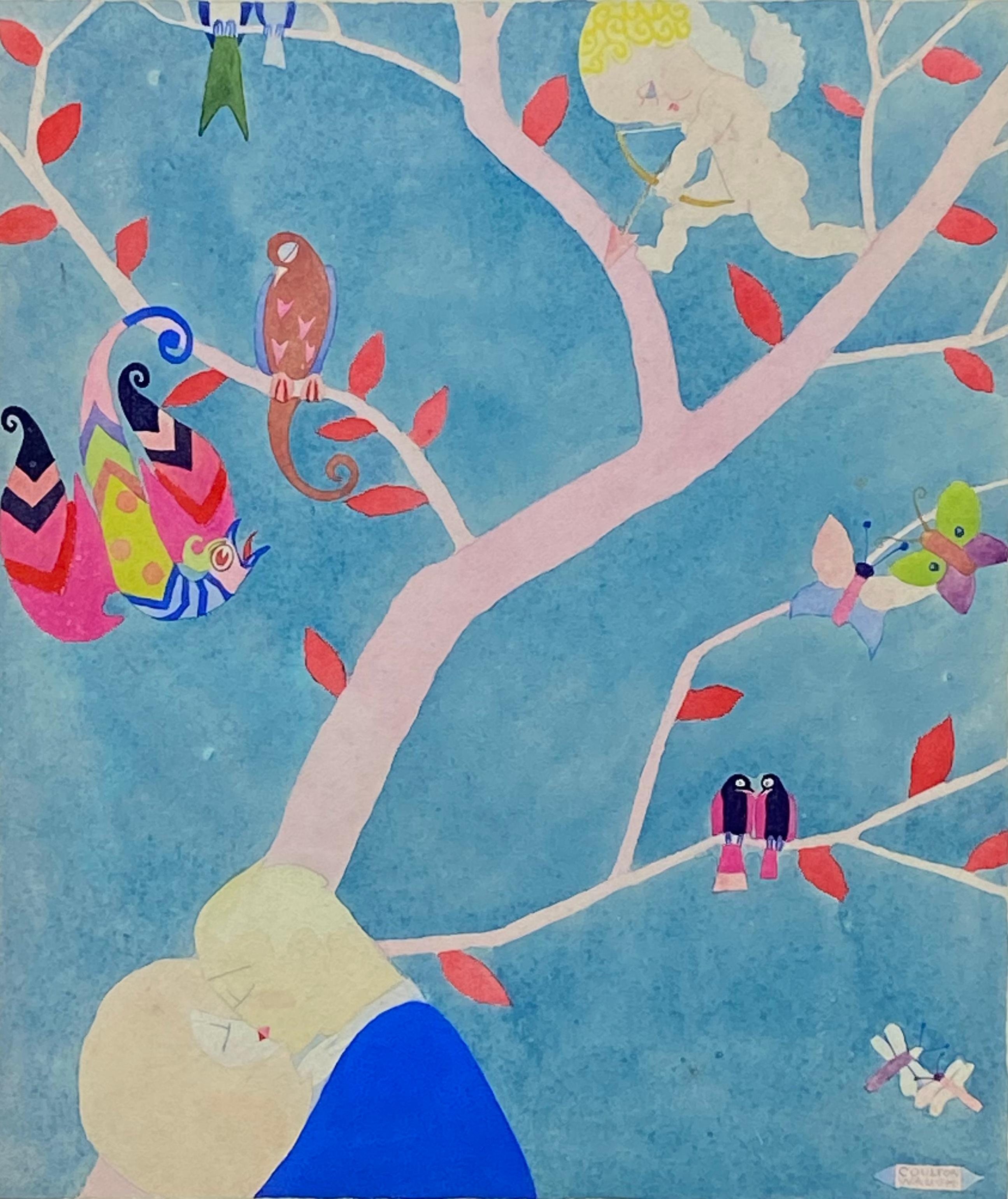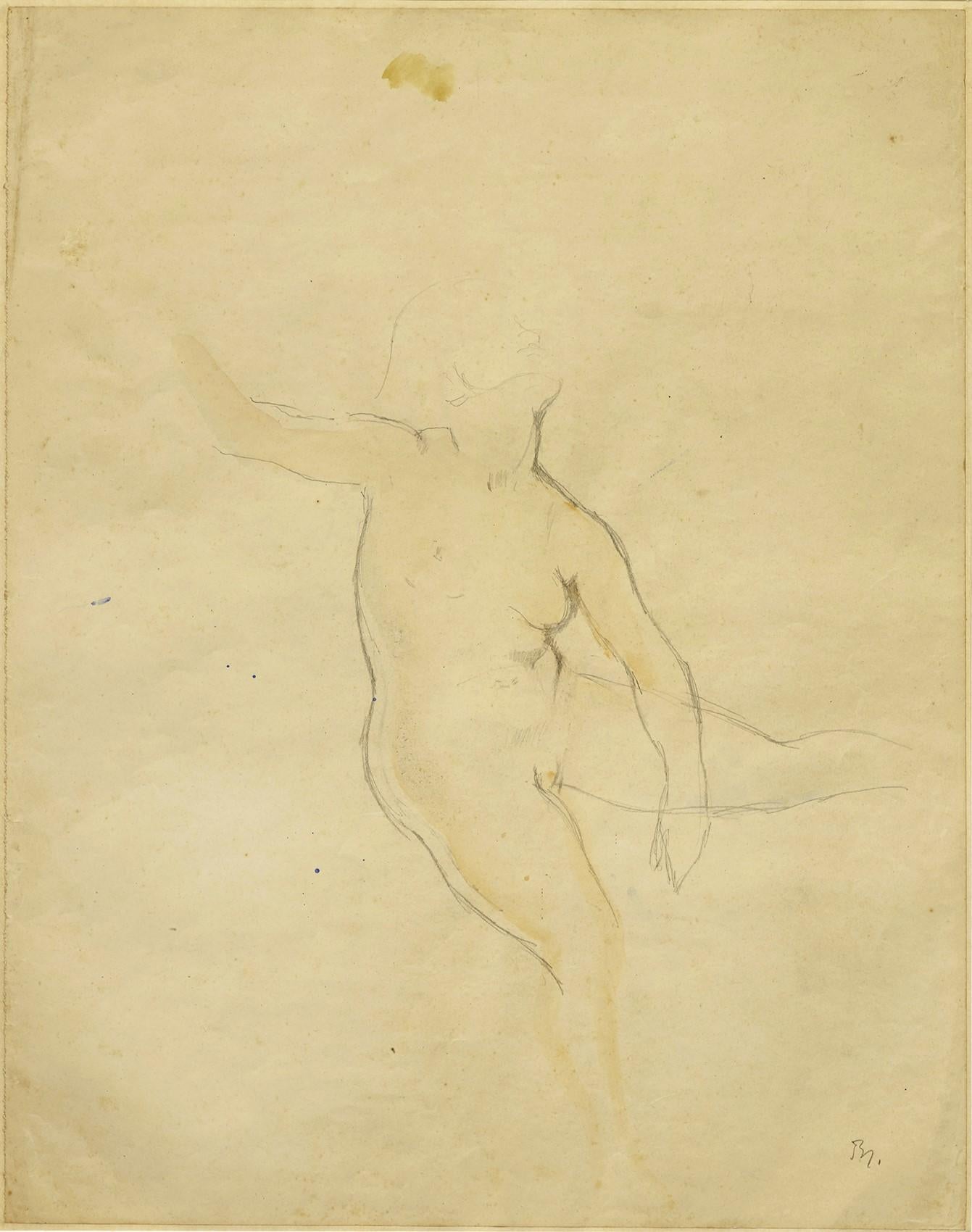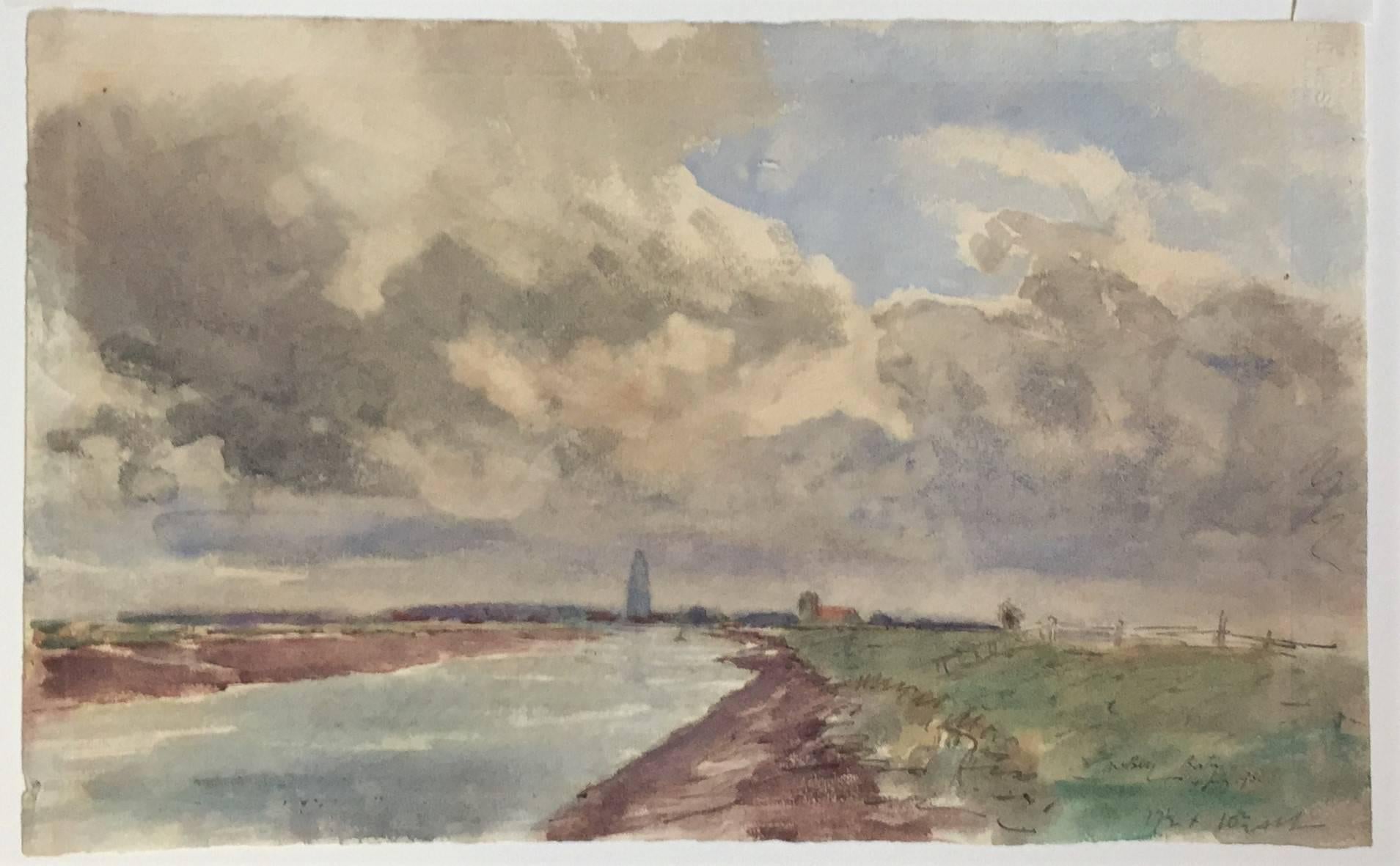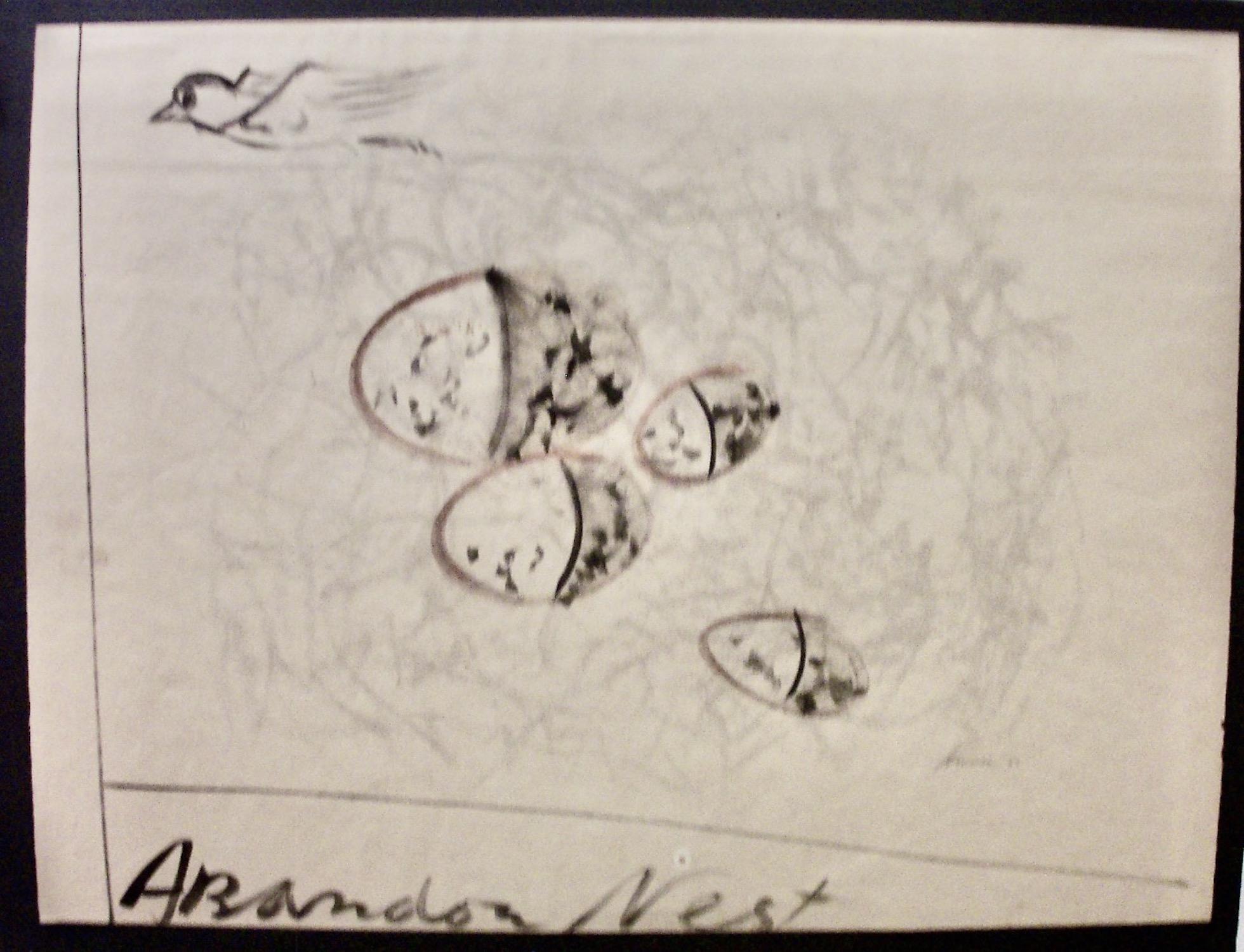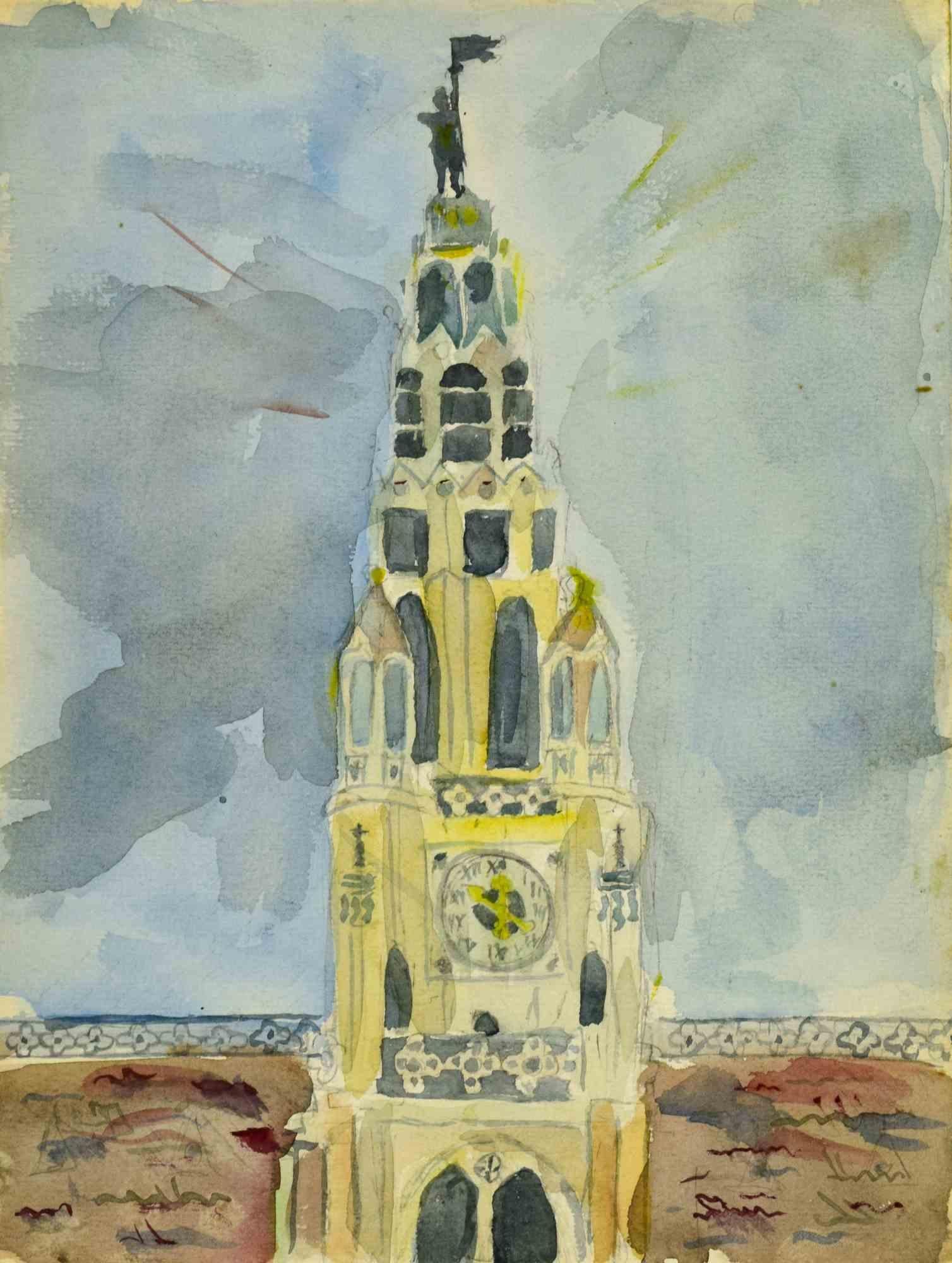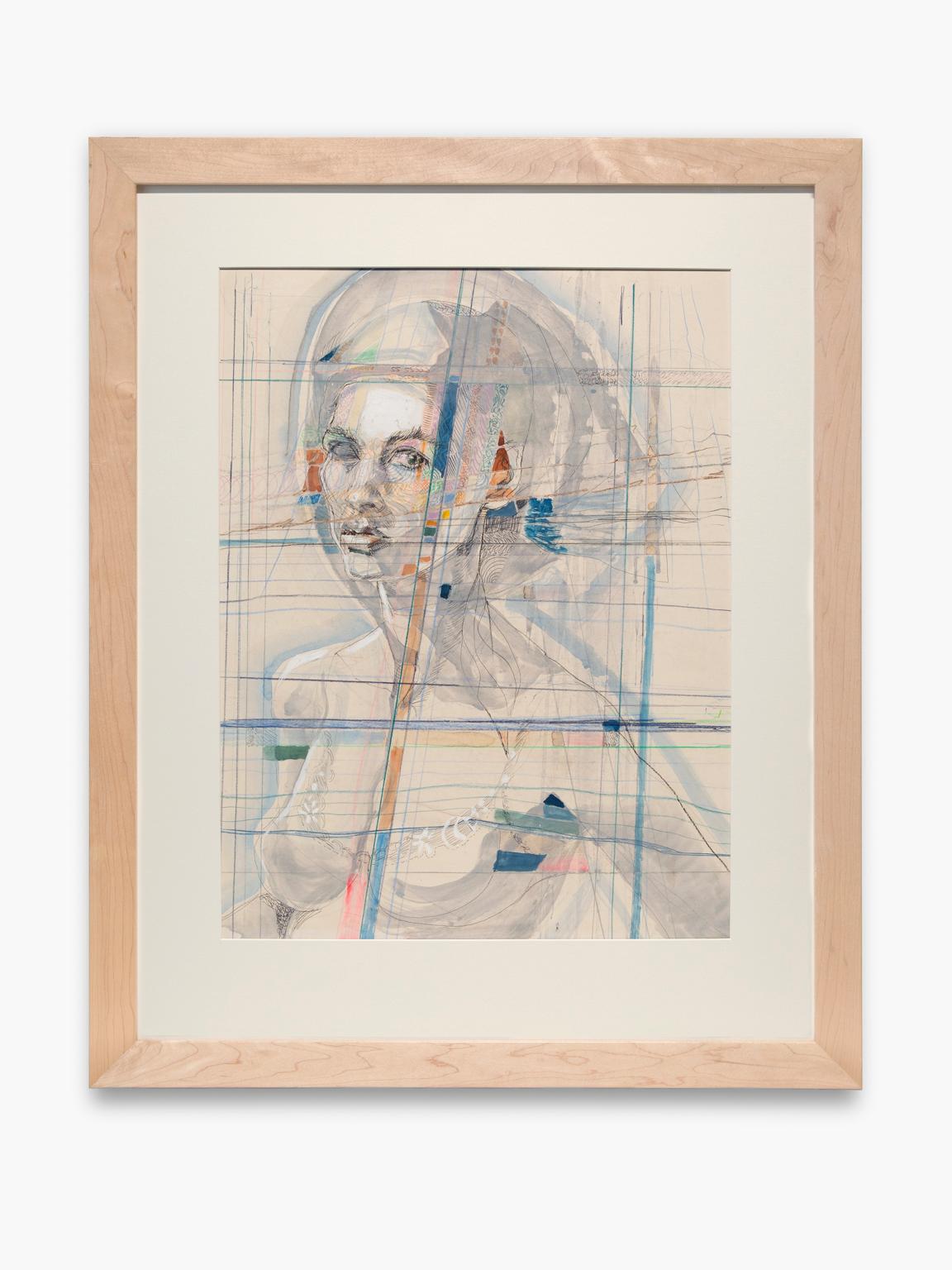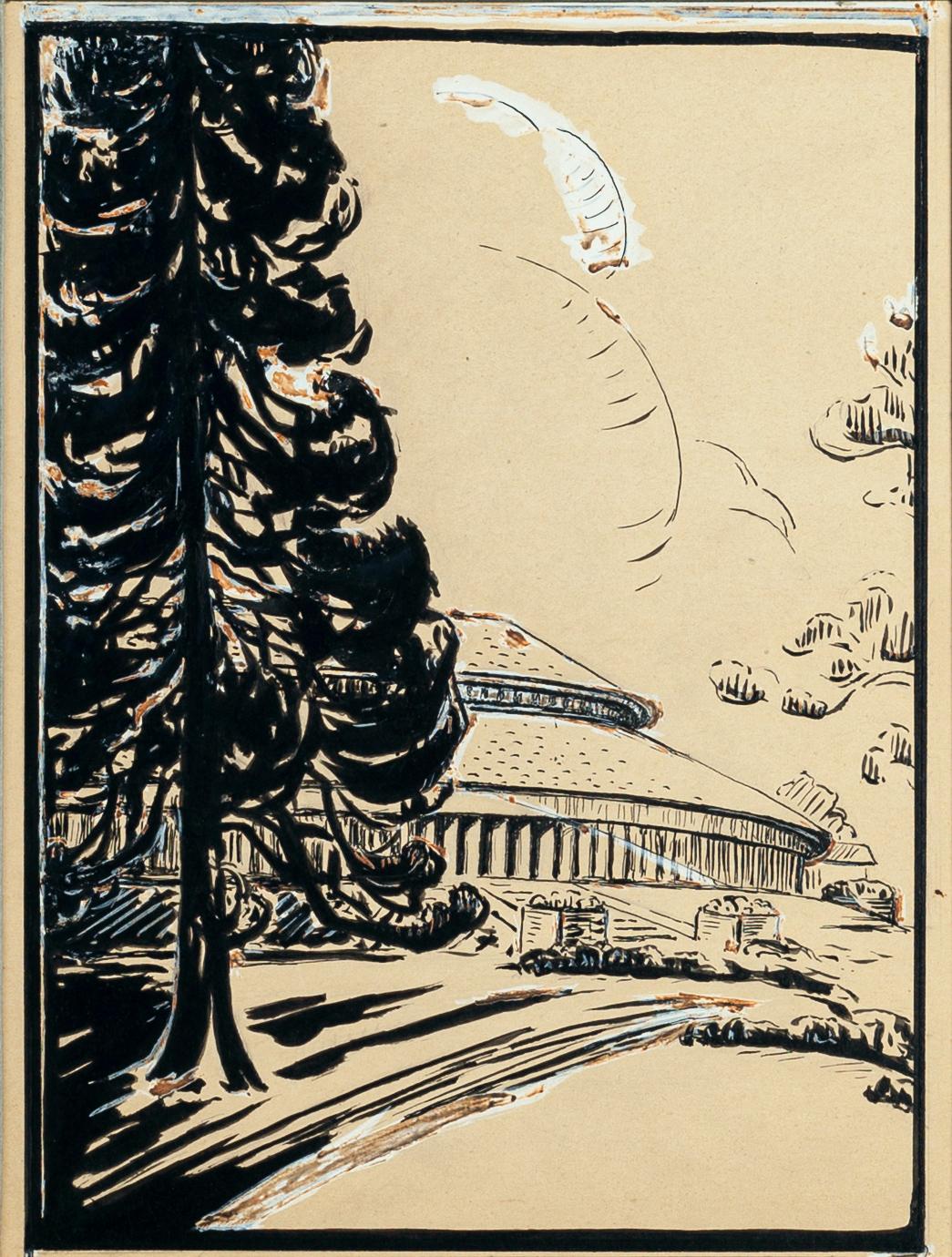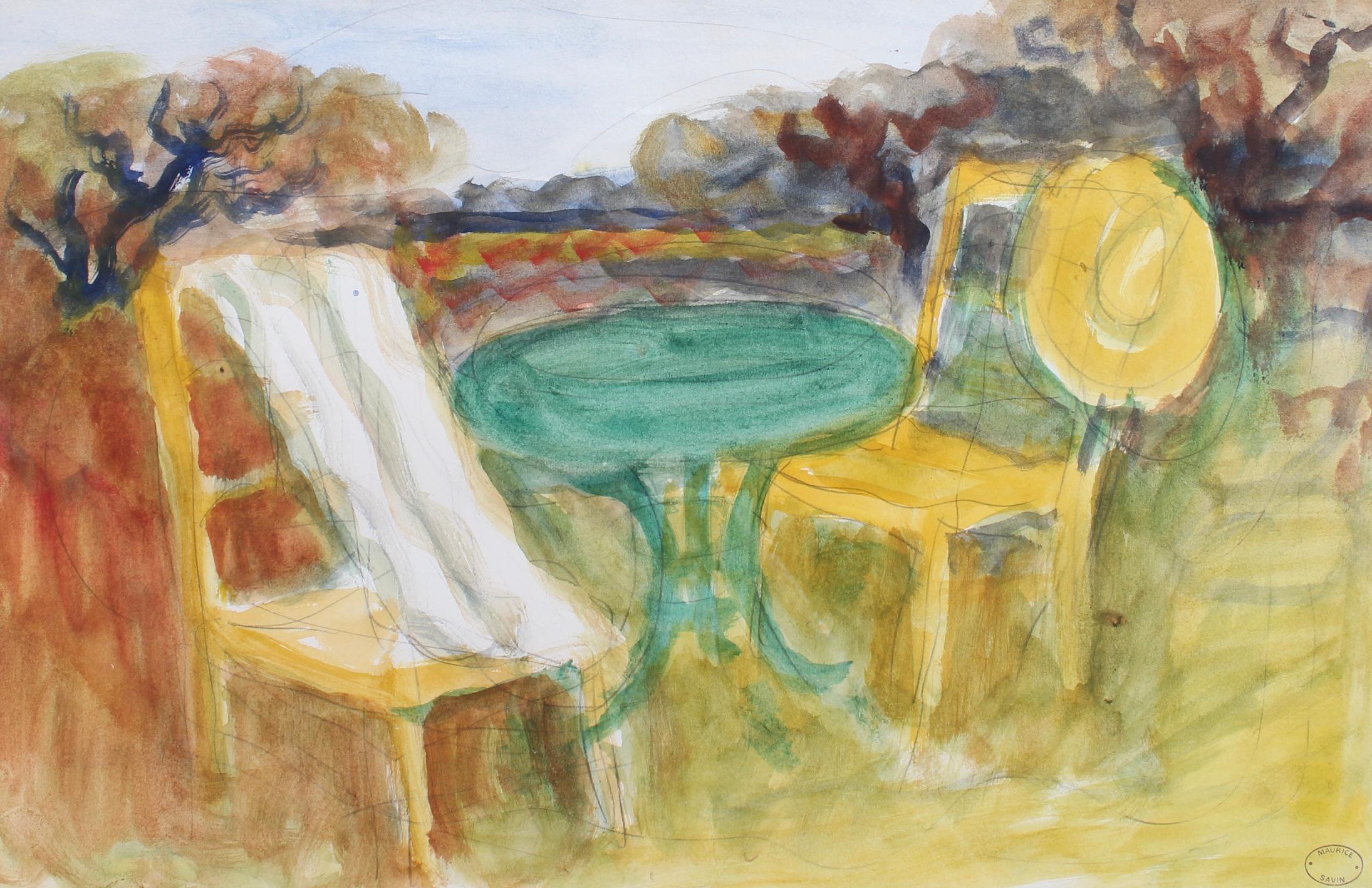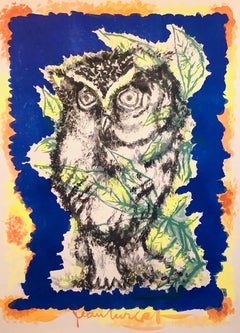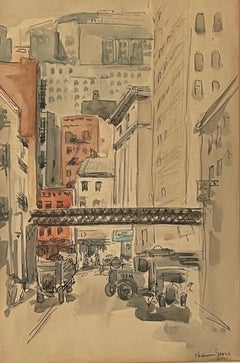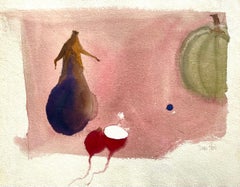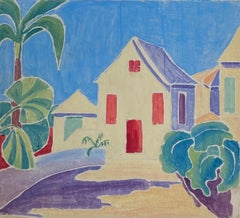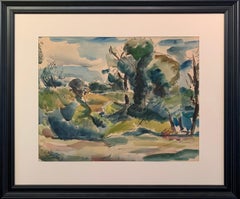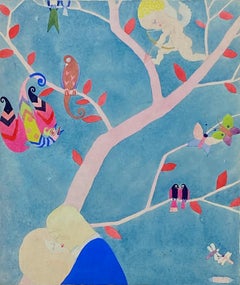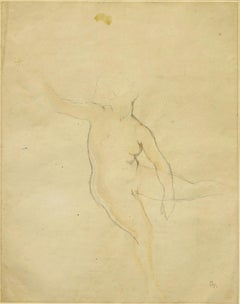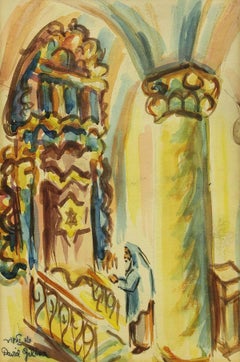
Synagogue Interior Safed, Israel
View Similar Items
Want more images or videos?
Request additional images or videos from the seller
1 of 2
David GilboaSynagogue Interior Safed, Israel
About the Item
- Creator:David Gilboa (1910 - 1976)
- Dimensions:Height: 10 in (25.4 cm)Width: 6 in (15.24 cm)
- Medium:
- Movement & Style:
- Period:
- Condition:back of board a bit rough. it is unframed.
- Gallery Location:Surfside, FL
- Reference Number:1stDibs: LU3822026633
About the Seller
4.9
Platinum Seller
Premium sellers with a 4.7+ rating and 24-hour response times
Established in 1995
1stDibs seller since 2014
1,760 sales on 1stDibs
Typical response time: 1 hour
Authenticity Guarantee
In the unlikely event there’s an issue with an item’s authenticity, contact us within 1 year for a full refund. DetailsMoney-Back Guarantee
If your item is not as described, is damaged in transit, or does not arrive, contact us within 7 days for a full refund. Details24-Hour Cancellation
You have a 24-hour grace period in which to reconsider your purchase, with no questions asked.Vetted Professional Sellers
Our world-class sellers must adhere to strict standards for service and quality, maintaining the integrity of our listings.Price-Match Guarantee
If you find that a seller listed the same item for a lower price elsewhere, we’ll match it.Trusted Global Delivery
Our best-in-class carrier network provides specialized shipping options worldwide, including custom delivery.More From This Seller
View AllVintage French Modernist Jean Lurcat Watercolor Painting Mod Blue and Orange Owl
By Jean Lurçat
Located in Surfside, FL
Jean Lurcat,New York, France, 1892-1966
Depicts a highly stylized, expressionist owl bird figure hidden in leaves surrounded by bright, vibrant, vivid blue, yellow, and orange colors...
Category
Mid-20th Century Modern Animal Paintings
Materials
Watercolor, Lithograph
Rare Chaim Gross Watercolor Painting Manhattan Skyscrapers Train NYC WPA Artist
By Chaim Gross
Located in Surfside, FL
This appears to be dated 1927. It came in with a piece dated 1929. A very early, rare work.
Framed 22.5 x 18. Image 14.5 x 9
A great New York city street scene with an El train (elev...
Category
Mid-20th Century American Modern Figurative Drawings and Watercolors
Materials
Paper, Watercolor
Watercolor Still life Painting Vegetables Claus Hoien Greengrocer Kitchen Series
Located in Surfside, FL
Delicate watercolor of vegetables. Japanese eggplant and radishes and a squash gourd.
Framed 18 X 20 image is 11 X 13.5
Claus Hoie was a Norwegian-American...
Category
20th Century American Modern Still-life Drawings and Watercolors
Materials
Watercolor
Rare Modernist Hungarian Rabbi Pastel Drawing Gouache Painting Judaica Art Deco
By Hugó Scheiber
Located in Surfside, FL
Rabbi in the synagogue at prayer wearing tallit and tefillin.
Hugó Scheiber (born 29 September 1873 in Budapest – died there 7 March 1950) was a Hungarian modernist painter.
Hugo Scheiber was brought from Budapest to Vienna at the age of eight where his father worked as a sign painter for the Prater Theater. At fifteen, he returned with his family to Budapest and began working during the day to help support them and attending painting classes at the School of Design in the evening, where Henrik Papp was one of his teachers. He completed his studies in 1900. His work was at first in a post-Impressionistic style but from 1910 onward showed his increasing interest in German Expressionism and Futurism. This made it of little interest to the conservative Hungarian art establishment.
However, in 1915 he met the great Italian avant-gardist Filippo Tommaso Marinetti and the two painters became close friends. Marinetti invited him to join the Futurist Movement. The uniquely modernist style that he developed was, however, closer to German Expressionism than to Futurism and eventually drifted toward an international art deco manner similar to Erté's. In 1919, he and his friend Béla Kádar held an exhibition at the Hevesy Salon in Vienna. It was a great success and at last caused the Budapest Art Museum to acquire some of Scheiber's drawings. Encouraged, Scheiber came back to live in Vienna in 1920.
A turning point in Scheiber's career came a year later, when Herwarth Walden, founder of Germany's leading avant-garde periodical, Der Sturm, and of the Sturm Gallery in Berlin, became interested in Scheiber's work. Scheiber moved to Berlin in 1922, and his paintings soon appeared regularly in Walden's magazine and elsewhere. Exhibitions of his work followed in London, Rome, La Paz, and New York.
Scheiber's move to Germany coincided with a significant exodus of Hungarian artists to Berlin, including Laszlo Moholy-Nagy and Sandor Bortnyik. There had been a major split in ideology among the Hungarian avant-garde. The Constructivist and leader of the Hungarian avantgarde, Lajos Kassák (painted by Hugó Scheiber in 1930) believed that art should relate to all the needs of contemporary humankind. Thus he refused to compromise the purity of his style to reflect the demands of either the ruling class or socialists and communists. The other camp believed that an artist should be a figurehead for social and political change.
The fall out and factions that resulted from this politicisation resulted in most of the Hungarian avant gardists leaving Vienna for Berlin. Hungarian émigrés made up one of the largest minority groups in the German capital and the influx of their painters had a significant effect on Hungarian and international art. Another turning point of Scheiber's career came in 1926, with the New York exhibition of the Société Anonyme, organized by Katherine Dreier. Scheiber and other important avant garde artists from more than twenty-three countries were represented. In 1933, Scheiber was invited by Marinetti to participate in the great meeting of the Futurists held in Rome in late April 1933, Mostra Nazionale d’Arte Futurista where he was received with great enthusiasm. Gradually, the Hungarian artists began to return home, particularly with the rise of Nazism in Germany. Kádar went back from Berlin in about 1932 and Scheiber followed in 1934.
He was then at the peak of his powers and had a special flair in depicting café and cabaret life in vivid colors, sturdily abstracted forms and spontaneous brush strokes. Scheiber depicted cosmopolitan modern life using stylized shapes and expressive colors. His preferred subjects were cabaret and street scenes, jazz musicians, flappers, and a series of self-portraits (usually with a cigar). his principal media being gouache and oil. He was a member of the prestigious New Society of Artists (KUT—Képzőművészek Új Társasága)and seems to have weathered Hungary's post–World War II transition to state-communism without difficulty. He continued to be well regarded, eventually even receiving the posthumous honor of having one of his images used for a Russian Soviet postage stamp (see image above). Hugó Scheiber died in Budapest in 1950.
Paintings by Hugó Scheiber form part of permanent museum collections in Budapest (Hungarian National Museum), Pecs (Jannus Pannonius Museum), Vienna, New York, Bern and elsewhere. His work has also been shown in many important exhibitions, including:
"The Nell Walden Collection," Kunsthaus Zürich (1945)
"Collection of the Société Anonyme," Yale University Art Gallery, New Haven, Connecticut (1950)
"Hugó Scheiber: A Commemorative Exhibition," Hungarian National Museum, Budapest (1964)
"Ungarische Avantgarde," Galleria del Levante, Munich (1971)
"Paris-Berlin 1900-1930," Centre Georges Pompidou, Paris (1978)
"L’Art en Hongrie, 1905-1920," Musée d’Art et l’Industrie, Saint-Etienne (1980)
"Ungarische Avantgarde in der Weimarer Republik," Marburg (1986)
"Modernizmus," Eresz & Maklary Gallery, Budapest (2006)
"Hugó Scheiber & Béla Kádár," Galerie le Minotaure, Paris and Tel Aviv (2007)
Hugó Scheiber's paintings continue to be regularly sold at Sotheby's, Christie's, Gillen's Arts (London), Papillon Gallery (Los Angeles) and other auction houses.
He was included in the exhibition The Art Of Modern Hungary 1931 and other exhibitions along with Vilmos Novak Aba, Count Julius Batthyany, Pal Bor, Bela Buky, Denes Csanky, Istvan Csok, Bela Czobel, Peter Di Gabor, Bela Ivanyi Grunwald, Baron Ferenc Hatvany, Lipot Herman, Odon Marffy, C. Pal Molnar...
Category
Early 20th Century Modern Figurative Paintings
Materials
Paper, Charcoal, Pastel, Watercolor, Gouache
Post Soviet Nonconformist Avant Garde Russian Israeli Gouache Painting Grobman
By Michail Grobman
Located in Surfside, FL
MIchail Grobman
Gouache and watercolor on paper
Hand signed Lower Left and Dated 1964.
Described inn Cyrillic Russian verso.
Dimensions: L:13.25" W: 11.75".
Michail Grobman (Russian: Михаил Гробман, Hebrew: מיכאיל גרובמן, born 1939) is an artist and a poet working in Israel and Russia. He is father to Hollywood producer Lati Grobman and Israeli architect Yasha Jacob Grobman.
Biography
1939 – Born in Moscow.
1960s – Active member of The Second Russian Avant-Garde movement in the Soviet Union.
1967 – Member of Moscow Artists Union.
1971 – Emigrates to Israel and settles in Jerusalem.
1975 – Founded the Leviathan group and art periodical (in Russian).
Since 1983, he lives and works mainly in Tel Aviv.
Awards
In 2001, Grobman was a co-recipient of the Dizengoff Prize for Painting.
Solo exhibitions
2007 – Last Skies, Loushy & Peter Art & Projects, Tel Aviv (cat. text: Marc Scheps)
2006 – Creation From Chaos to Cosmos, Bar-David Museum of Fine Art and Judaica, Kibbutz Baram (cat. text: Sorin Heller)
2002 – The Last Sky, installation, Tsveta Zuzoritch pavilion, Belgrad (cat. text: Irina Subotitch)
1999 – Mikhail Grobman: Works 1960–1998, The State Russian Museum, St. Petersburg (cat. texts: Evgeniya Petrova, Marc Scheps, Lola Kantor-Kazovsky, Michail German)
Michail Grobman was born in Moscow. He grew up writing poetry, essays and literary prose. In the 1960s, he was active in the Second Russian Avant-garde movement in the Soviet Union. In 1971, he immigrated to Israel. In 1975, he established the Leviathan school together with Avraham Ofek and Shmuel Ackerman, seeking to combine symbolism, metaphysics and Judaism in an all-inclusive “national style.”
Grobman’s lithograph work employs images and symbols from Jewish mysticism and Kabbalah. His paintings incorporate texts in Russian and Hebrew. In addition to his artistic endeavors, he writes about art and aesthetics. The group combined conceptual art and "land art" with Jewish symbolism. Of the three of them Avraham Ofek had the deepest interest in sculpture and its relationship to religious symbolism and images. In one series of his works Ofek used mirrors to project Hebrew letters, words with religious or cabbalistic significance, and other images onto soil or man-made structures. In his work "Letters of Light" (1979), for example, the letters were projected onto people and fabrics and the soil of the Judean Desert. In another work Ofek screened the words "America", "Africa", and "Green card" on the walls of the Tel Hai courtyard during a symposium on sculpture
Part of the generation of emigre Russian artists, many Jewish, that included Yuri Kuper, Komar and Melamid, Eduard Steinberg, Erik Bulatov, Viktor Pivovarov, Vladimir Yankilevsky, Ilya Kabakov and Grisha Bruskin.
Date of Birth: 1939, Moscow
1960s Active member of The Second Russian Avant Garde
1967 Member of the Moscow Painters Association
1971 Immigrated to Israel and settled in Jerusalem
1975 Founded the Leviathan group and art periodical (in Russian)
Since 1983 Lives and works in Tel Aviv
.
Selected Solo Exhibitions:
2002 Pavilion Zveta Zuzovich, "The Last Sky", Belgrad (cat: Irena Subotitch)
1999 The State Russian Museum, ST. Petersburg
1998 "Picture = Symbol + Concept", Herzliya Museum of Art, Herzliya
1995 "Password and Image", University Gallery, Haifa University
1990 Tova Osman Gallery, Tel Aviv
1989 "The Beautiful Sixties in Moscow", The Genia Schreiber University Art Gallery, Tel Aviv University (with llya Kabakov; cat. text: Mordechai Omer]
Spertus Museum, Chicago
Beit Rami and Uri Nechushtan, Ashdot Yaacov (leaflet)
1972 Nora Gallery, Jerusalem 1973 - Negev Museum, Beer Sheva
1971 Tel Aviv Museum of Art (cat. text: Haim Gamzu)
1966 Mos-lng-Projekt, Moscow
1965 Artist's House, Moscow
Energy Institute, Moscow
History Institute, Moscow
Usti-nad-Orlicy Theatre,Czechoslovakia (leaflet text: Dushan Konetchni)
1959 Mukhina Art Institute, Leningrad
.
Selected Group Exhibitions:
2003 "Yes do yourself...", Regeneration of Judaism in Israeli art, Zman Omanut Tel Aviv (cat: Gideon Ofrat)
1999 "Russian post-war avantgarde", The Trajsman Collection in the State Russian Museum, St. Petersburg Tretjakov National Gallery, Moscow (cat. text: Yevgenij Barabanov, John Bolt...
Category
1960s Modern Abstract Paintings
Materials
Paper, Watercolor, Gouache
Post Soviet Nonconformist Avant Garde Russian Israeli Gouache Painting Grobman
By Michail Grobman
Located in Surfside, FL
Michail Gorbman, Russian Born 1939.
Watercolor on Green Paper, Black Fish with Yellow Dots.
Hand signed Upper Left, Dated 1964.
Signed verso and Described.
Dimensions: 10 X 7.25 inches
\
Michail Grobman (Russian: Михаил Гробман, Hebrew: מיכאיל גרובמן, born 1939) is an artist and a poet working in Israel and Russia. He is father to Hollywood producer Lati Grobman and Israeli architect Yasha Jacob Grobman.
Biography
1939 – Born in Moscow.
1960s – Active member of The Second Russian Avant-Garde movement in the Soviet Union.
1967 – Member of Moscow Artists Union.
1971 – Emigrates to Israel and settles in Jerusalem.
1975 – Founded the Leviathan group and art periodical (in Russian).
Since 1983, he lives and works mainly in Tel Aviv.
Awards
In 2001, Grobman was a co-recipient of the Dizengoff Prize for Painting.
Solo exhibitions
2007 – Last Skies, Loushy & Peter Art & Projects, Tel Aviv (cat. text: Marc Scheps)
2006 – Creation From Chaos to Cosmos, Bar-David Museum of Fine Art and Judaica, Kibbutz Baram (cat. text: Sorin Heller)
2002 – The Last Sky, installation, Tsveta Zuzoritch pavilion, Belgrad (cat. text: Irina Subotitch)
1999 – Mikhail Grobman: Works 1960–1998, The State Russian Museum, St. Petersburg (cat. texts: Evgenija Petrova, Marc Scheps, Lola Kantor-Kazovsky, Michail German)
Michail Grobman was born in Moscow. He grew up writing poetry, essays and literary prose. In the 1960s, he was active in the Second Russian Avant-garde movement in the Soviet Union. In 1971, he immigrated to Israel. In 1975, he established the Leviathan school together with Avraham Ofek and Shmuel Ackerman, seeking to combine symbolism, metaphysics and Judaism in an all-inclusive “national style.”
Grobman’s lithograph work employs images and symbols from Jewish mysticism and Kabbalah. His paintings incorporate texts in Russian and Hebrew. In addition to his artistic endeavors, he writes about art and aesthetics. The group combined conceptual art and "land art" with Jewish symbolism. Of the three of them Avraham Ofek had the deepest interest in sculpture and its relationship to religious symbolism and images. In one series of his works Ofek used mirrors to project Hebrew letters, words with religious or cabbalistic significance, and other images onto soil or man-made structures. In his work "Letters of Light" (1979), for example, the letters were projected onto people and fabrics and the soil of the Judean Desert. In another work Ofek screened the words "America", "Africa", and "Green card" on the walls of the Tel Hai courtyard during a symposium on sculpture
Part of the generation of emigre Russian artists, many Jewish, that included Yuri Kuper, Komar and Melamid, Eduard Steinberg, Erik Bulatov, Viktor Pivovarov, Vladimir Yankilevsky, Ilya Kabakov and Grisha Bruskin.
Date of Birth: 1939, Moscow
1960s Active member of The Second Russian Avant Garde
1967 Member of the Moscow Painters Association
1971 Immigrated to Israel and settled in Jerusalem
1975 Founded the Leviathan group and art periodical (in Russian)
Since 1983 Lives and works in Tel Aviv
.
Selected Solo Exhibitions:
2002 Pavilion Zveta Zuzovich, "The Last Sky", Belgrad (cat: Irena Subotitch)
1999 The State Russian Museum, ST. Petersburg
1998 "Picture = Symbol + Concept", Herzliya Museum of Art, Herzliya
1995 "Password and Image", University Gallery, Haifa University
1990 Tova Osman Gallery, Tel Aviv
1989 "The Beautiful Sixties in Moscow", The Genia Schreiber University Art Gallery, Tel Aviv University (with llya Kabakov; cat. text: Mordechai Omer]
Spertus Museum, Chicago
Beit Rami and Uri Nechushtan, Ashdot Yaacov (leaflet)
1972 Nora Gallery, Jerusalem 1973 - Negev Museum, Beer Sheva
1971 Tel Aviv Museum of Art (cat. text: Haim Gamzu)
1966 Mos-lng-Projekt, Moscow
1965 Artist's House, Moscow
Energy Institute, Moscow
History Institute, Moscow
Usti-nad-Orlicy Theatre,Czechoslovakia (leaflet text: Dushan Konetchni)
1959 Mukhina Art Institute, Leningrad
.
Selected Group Exhibitions:
2003 "Yes do yourself...", Regeneration of Judaism in Israeli art, Zman Omanut Tel Aviv (cat: Gideon Ofrat)
1999 "Russian post-war avantgarde", The Trajsman Collection in the State Russian Museum, St. Petersburg Tretjakov National Gallery, Moscow (cat. text: Yevgenij Barabanov, John...
Category
20th Century Modern Animal Drawings and Watercolors
Materials
Paper, Watercolor
You May Also Like
“Untitled”
By Coulton Waugh
Located in Southampton, NY
Original watercolor on archival paper attributed to the hand of Coulton Waugh. Purchased along with a second signed piece of artwork by the artist. See listing titled “Cupid”. Circa 1950. Condition is very good. Several tiny mild areas of staining right and left corners bottom covered by matting. Recently professionally matted.. Unframed. Provenance: A Pennsylvania estate.
Coulton Waugh was born in 1896 in Cornwall, England. He was an American visual artist, son of maritime painter Frederick Judd Waugh, and his grandfather was the Philadelphia portrait...
Category
1950s Modern Figurative Drawings and Watercolors
Materials
Watercolor, Archival Paper
$1,120 Sale Price
20% Off
Green Landscape, Watercolor and Ink on Paper, circa 1926
By Leon Kelly
Located in Doylestown, PA
"Green Landscape" by Philadelphia born modernist and surrealist painter Leon Kelly, is a framed and matted landscape painting. The 17.5" x 23.5" watercolor and ink on paper is signed...
Category
1920s American Modern Landscape Drawings and Watercolors
Materials
Archival Ink, Watercolor, Archival Paper
“Cupid”
By Coulton Waugh
Located in Southampton, NY
Very usually and rare original watercolor on archival by the American artist, Coulton Waugh. Signed bottom right. Condition is very good. Circa 1950. Recently professionally matted. Unframed. Provenance: A Pennsylvania estate.
Coulton Waugh was born in 1896 in Cornwall, England. He was an American visual artist, son of maritime painter Frederick Judd Waugh, and his grandfather was the Philadelphia...
Category
1950s Modern Figurative Drawings and Watercolors
Materials
Watercolor, Archival Paper
$1,280 Sale Price
20% Off
Study for "Getting up" – 1955, a preparatory drawing by Balthus (1908 -2001)
By Balthus (Balthasar Klossowski de Rola)
Located in PARIS, FR
In 1955, as he was residing at the Château de Chassy in the Morvan for two years, Balthus created a large painting entitled "Getting up". Balthus was inspired for this painting by t...
Category
1950s Modern Nude Drawings and Watercolors
Materials
Watercolor, Pencil
Landscape (Crawford Notch, New Hampshire)
By Wes Olmsted
Located in Buffalo, NY
An original watercolor painting by Westley "Wes" Olmsted. This work is currently featured in the exhibition Man of Extremes at Benjaman Gallery in Buffalo, NY.
Westley G. Olmsted (1934-2011) was a painter and sculptor. He was born in Buffalo, New York, and was a distant relative Frederick Law Olmsted...
Category
1970s Modern Landscape Drawings and Watercolors
Materials
Watercolor
Thunderstorm Over Boston
By James McBey
Located in Storrs, CT
Thunderstorm over Boston. July 14, 1930. Ink and watercolor on paper. 10 5/8 x 17 5/8 (sheet 12 x 19 1/4). Signed and dated and titled in ink, lower right; titled verso and annotated...
Category
Mid-20th Century Modern Landscape Drawings and Watercolors
Materials
India Ink, Watercolor
$1,400 Sale Price
20% Off
Recently Viewed
View AllMore Ways To Browse
Robert Louis Stevenson
Nude Drawings Gold Framed
English Botanical Watercolors
Watercolour Portrait Victorian
Boat Architectural Drawing
Charcoal Drawings Of Trees
Cattle Watercolor
18th Century Watercolour Portraits
Watercolor Farmhouse
Stained Glass Window 20th C
St Marks Cathedral
Black Charcoal Nude
Nude Pencil Graphite Drawing
Watercolor Fog
British Watercolors 18th Century
Fisherman Watercolor
Charcoal Drawing Flowers
Country Charcoal Drawings
